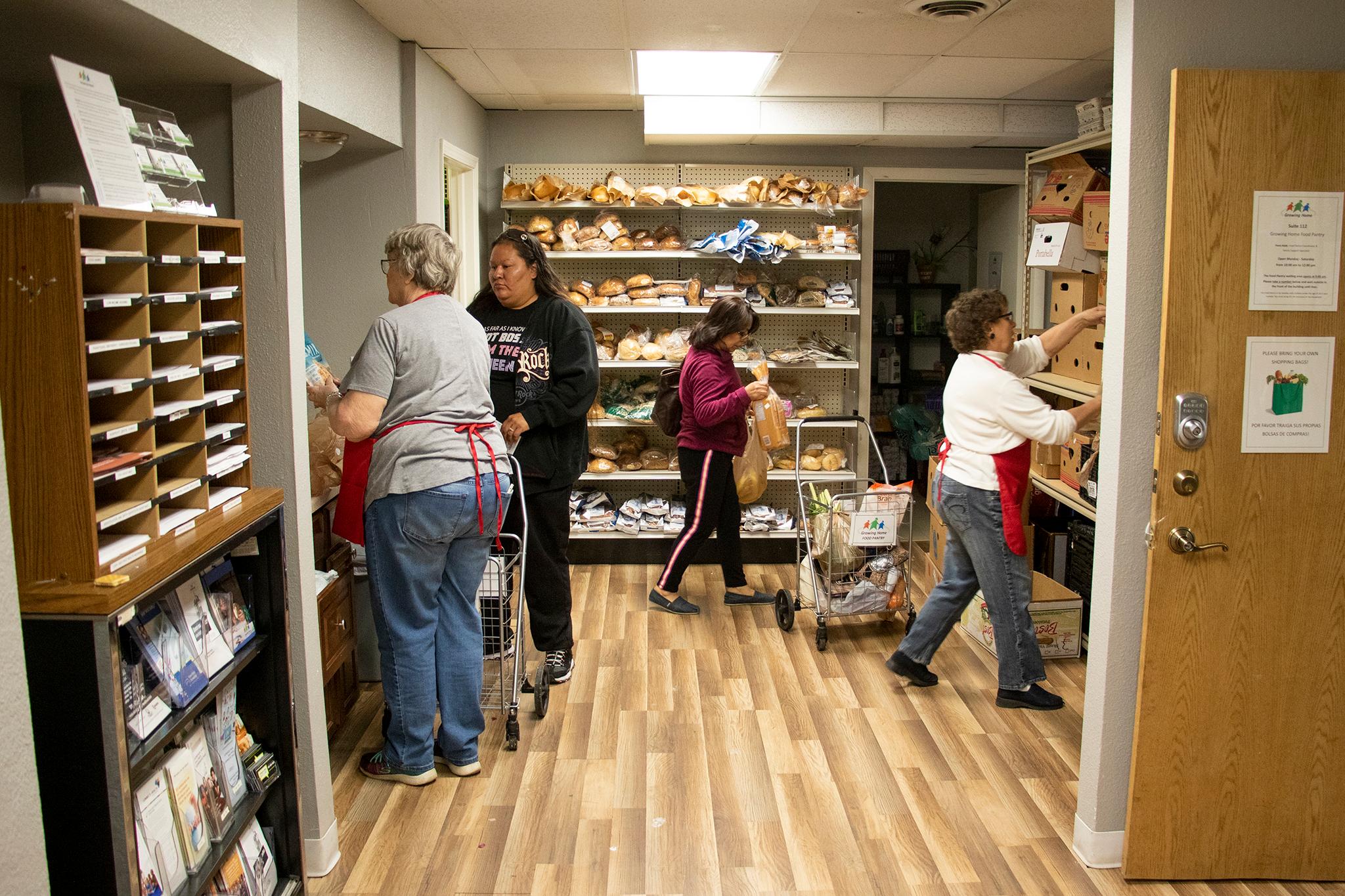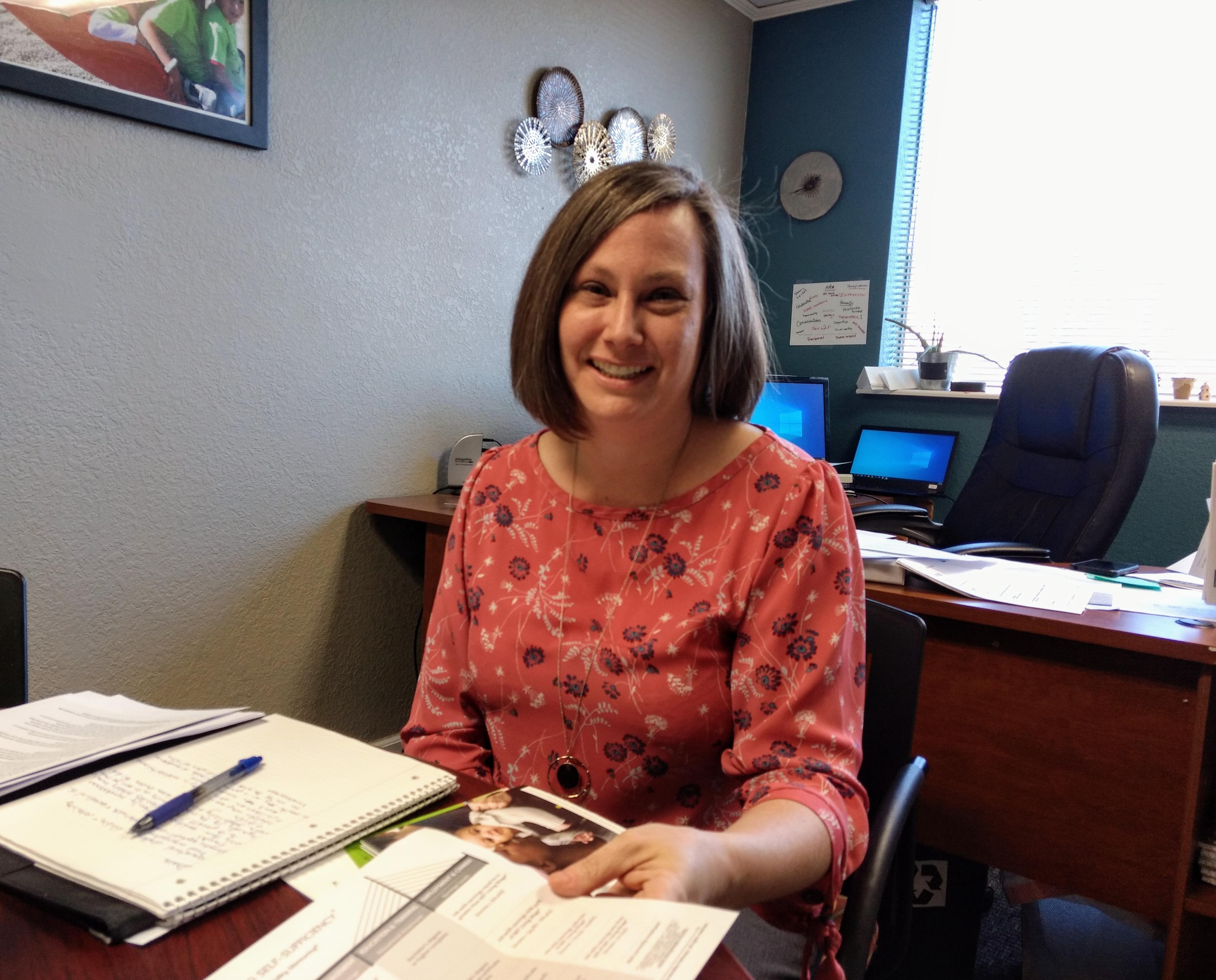A metro Denver nonprofit is shutting down its shelter program so it can focus on preventing, instead of reacting to, homelessness.
The program has not "created the solutions that we ideally hoped," said Karen Fox Elwell, president and CEO of Growing Home.
Growing Home is based in Adams County and offers support to people across the region with permanent affordable housing in its own 20-unit apartment building, a recently renovated food pantry, and rental assistance. The nonprofit started 21 years ago with a program known as Canopy, offering families experiencing homelessness temporary shelter provided by a network of churches, that will be closed by the end of the year.
Fox Elwell said that other than Canopy, Growing Home programs have focused on prevention.
"We truly believe that the solution to ending homelessness is preventing homelessness," she said.
Paolo Diaz, Adams County's poverty reduction specialist, said Fox Elwell kept the county informed as she and her board explored ending Canopy and eventually made the decision to do so. He said she showed leadership by identifying a need for change.
But Diaz said the end of Canopy means that a county with limited resources for people experiencing homelessness would have to find a way, as winter approaches, to ensure families in need are housed in emergencies. Diaz pointed to the nonprofit Cold Weather Care as among those that continue to provide shelter services in Adams County. He hopes it will be expanded in the wake of Growing Home's decision.
"I can certainly see why she would make that decision," Diaz said. "Now we as a county need to look at how to fill the gap."
The county's goals include increasing housing options everyone can afford and preventing homelessness and displacement, Diaz said.
"That doesn't stop us from helping people who need it right now," Diaz said. "We want to be reactive. Because we understand that pretty much in the snap of a finger, anything can happen to anyone."
Fox Elwell said it was not an easy decision to end Growing Home's "founding program" and reduce the number of shelter beds available in Adams County.
She said others might be in a better position to provide emergency shelter.
"No single organization can solve this issue," Fox Elwell said. "We have to solve this issue together."
In addition to larger questions about whether Canopy was furthering efforts to end homelessness, it had become increasingly difficult to ensure it was providing shelter.
Under Canopy, churches provide space and volunteers who cook meals for the families they shelter. Volunteers also stay overnight in their churches when families are present. Canopy has 16 cots that are shifted from church to church as space and volunteers become available.
"The model requires a lot of the congregational partners," Fox Elwell said.
In the last three years, Growing Home has struggled to find and retain Canopy congregations and filled the gap with hotel rooms. Growing Home spent $40,000 on hotel rooms for families experiencing homelessness in the past year, Fox Elwell said.
"Our intent and our hope is to be able to invest that (money) more into the prevention programs," she said.
Helping a family pay rent or a utility bill, which are among the services Growing Home provides, might keep them from being evicted.
Finding stable housing after an eviction can be a challenge because landlords often point to eviction records as a reason to reject a potential tenant, Fox Elwell said.
In addition, Growing Home has funds to help with deposits and first month's rent to secure housing. Its food pantry helps families that might be weighing whether to buy groceries or pay rent.

Canopy typically shelters about 20 families a year. More than twice that number participate in other Growing Home programs, Fox Elwell said, adding that with money and staff shifted from Canopy, the number of people served by prevention programs could be doubled or tripled. Prevention programs are cheaper than emergency shelter, she said.
Fox Elwell said she and others at Growing Home have been studying other homelessness prevention models across the country and in the Denver area. That has led, among other initiatives, to plans for other kinds of financial assistance, because unexpected car repair or medical bills also can topple a family into homelessness. Growing Home will work with groups that provide legal assistance to prevent evictions and to educate tenants on their rights. The organization will also expand efforts to persuade policymakers of the need to build more affordable housing.
An individualized coaching program already offered by Growing Home will be honed to ensure it helps families make and reach goals that will help them stay housed.
Growing Home's approach has been to help children and their parents. Research shows the grave impact of homelessness on children, including a higher likelihood of experiencing homelessness again as adults. Fox Elwell hopes Growing Home's shift will mean fewer families will need emergency shelter.
In a statement it released about ending Canopy, Growing Home quoted Johnitta Medina, who got help from the nonprofit after experiencing homelessness last year.
"People shouldn't need to be in crisis to get support," Medina said. "It's so important to catch people before they enter that state."













